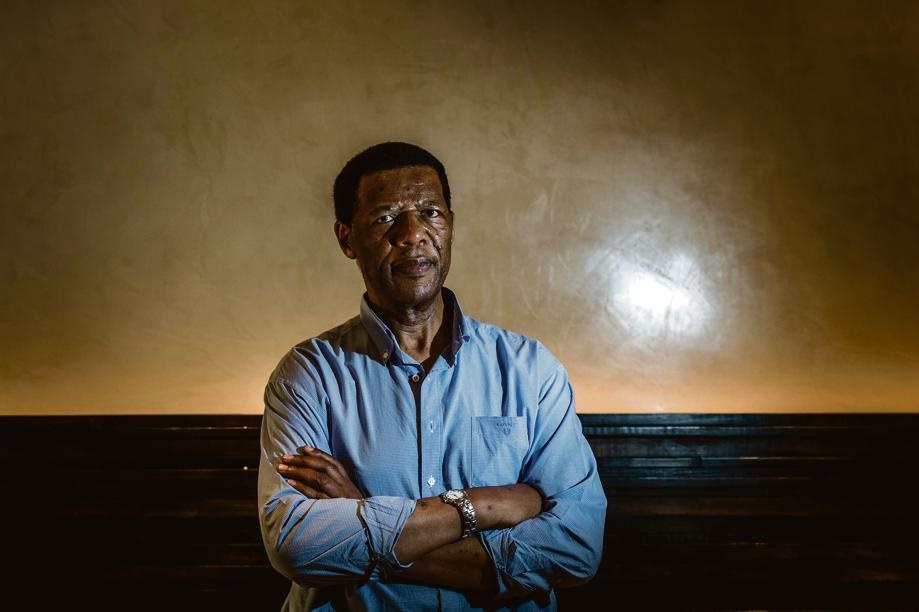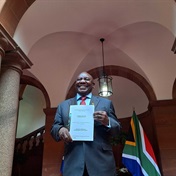
Last week City Press published two articles on land reform written by Pallo Jordan, an ANC veteran, and John Lamola, a senior researcher in the department of philosophy at the University of Fort Hare.
Both were reacting to a 30-page document written by the Thabo Mbeki Foundation a fortnight ago.
In a Radio 702 interview with Karima Brown the previous week, Jordan strongly denounced the foundation document titled What then about Expropriation Without Compensation?, a robust critique of the resolution adopted by the ANC at its 54th national conference in December last year calling for land expropriation without compensation as “one of the key mechanisms available to government to give effect to land reform and distribution”.
Jordan disagreed that the ANC resolution was at variance with the ANC policy of nonracialism and wondered why former president Thabo Mbeki had chosen to air his views on the matter in public instead of contributing to the debate he said was raging internally.
The foundation takes issue with the ANC conference resolution and says that it argues is in conflict with the Freedom Charter, a key document adopted by the ANC and its allies in Kliptown in 1955.
It states, inter alia, that “South Africa belongs to all who live in it, black and white”; that “The land shall be shared by all who work on it”; and that “all national groups shall have equal rights”.
The foundation also avers that the resolution is at odds with several past ANC decisions on land restitution and on the “national question”, which is about South African nationhood.
Jordan is riled by the foundation’s charge that the ANC resolution puts the organisation in the same position as the Pan Africanist Congress of Azania (PAC), which broke away from the ANC in 1959 because it disagreed with the Freedom Charter.
In his City Press article last week Jordan still disagrees with the foundation’s contention that historically the ANC had not favoured land expropriation without compensation.
Read: Land reform was a long-held priority for the ANC by Z.Pallo Jordan
However, he is less acerbic in his criticism of the foundation.
He nevertheless fails to show a single instance where the ANC called for expropriation without compensation.
Jordan asserts that in “the ANC’s 1969 Strategy and Tactics document”, Jordan asserts, “there is no reference to compensation, though it is not excluded”.
That is too ambiguous as an argument against the foundation’s claim to the contrary. Jordan refers to a another section of the same 1969 Strategy and Tactics document to illustrate the point that the ANC is not against expropriation without compensation.
It reads: “The bulk of the land in our country is in the hands of land barons, absentee landlords, big companies” etc. Such land, the document says, “must be taken away from exclusive European control … and divided among small farmers, peasants and the landless of all races who do not exploit the labour of others.”
(Whites in South Africa during colonial times liked calling themselves Europeans.) Surely, this statement is explicit on the type of land it suggests the ANC could take without compensation.
The rest of Jordan’s refutations of the foundation’s document, or pamphlet, as the foundation calls it, in respect of policy prescriptions for solving the land question were not ANC pronouncements but those of the Communist Party of SA, as the SA Communist Party was then called.
The fact of the matter is that the confusion and angst created by the expropriation without compensation resolution is not doing investor confidence any good and is detrimental to the economy.
The president has had to scramble across the world to clarify the party’s position.
Turning to Fort Hare’s senior researcher, John Lamola. He accuses Mbeki of “arrogance in questioning a policy direction, taken at a legitimately constituted national conference”. His lament is misplaced.
Read: Mbeki retrumpets the ANC principles that caused SA’s existential crisis by John Lamola
It so happens in the ANC discussion of contentious issues such as land expropriation without compensation are not anathema.
Look no further than Jordan’s gripe that Mbeki should have aired his view inside the organisation.
Lamola finds “Mbeki’s views problematic because of his location of the land debate within the history of the national struggle for emancipation – predating both the 1955 Kliptown Congress of the People and the era of wars of resistance against settler encroachment and dispossession”.
Somebody needs to inform Lamola that resistance against the settlers began as soon as they started encroaching on the land of the cattle-owning Khoi and the San in the 17th century.
Whichever other way Lamola looks at it, the struggle against colonial settlement was always core to the struggle to win back disposed land. Lamola also refers to “1958, when the first of what was to be many splits in the ANC occurred”.
Most South Africans who are 50 years or older know that the PAC was formed on April 6 1959.
A props the many splits, could it be that Lamola is referring to those that led to the formation of the United Democratic Movement in 1997; the Congress of the People in 2008; and the Economic Freedom Fighters in 2013? How does the fact that the first of these splits only took place 38 years after the PAC breakaway serve his point?
Or that the parties that broke away have absolutely no problem with the Freedom Charter?
Then we learn, from Lamola, that “a humanist force”, whatever that is, should not be associated with “a national liberation force”.
So much for all of us to earn from the redoubtable senior researcher in the fort Hare department of philosophy!
Lamola also says us that “being Africanist is to put the cause of Africa’s triumph, against all facets of imperialism, at the pinnacle of all one’s thinking and efforts”.
Yet more to learn. My suspicion is that any contemporary student of politics would assume that Lamola was describing Mbeki! After all, he is the leading proponent of the African Renaissance.
He wrote and delivered the much-quoted “I am an African” speech at the launch of the Constitution of the Republic of South Africa?
Mbeki was at the helm of government when South African National Defence Force peace-keeping troops were deployed to the Great Lakes Area.
He played second fiddle to no one in the development of The New Partnership for African Development, an economic programme of the African Union, with its headquarters in South Africa.
A keen Pan-Africanist, Mbeki has always championed issues of the African diaspora.
Former KwaZulu-Natal premier Sbusiso Ndebele would, I am certain, be happy to share the experience of African diaspora annual meetings that took place in Durban during Mbeki’s time as president of South Africa.
Might Lamola be familiar with the project Mbeki oversaw to preserve the Timbuktu Manuscripts?
So many more examples can be given to demonstrate Mbeki’s commitment to Africanism, but space restricts.
If, instead of indulging in pernicious propaganda about blacks committing genocide against whites in South Africa, or making lunatic claims such as that there were no people inhabiting South Africa when the colonialists landed in this country in 1652, AfriForum said “South Africa belongs to all who live in it”, as Lamola says they did, for once there would be one thing on which we agree.
Happily, one does not often encounter many writers who have little regard for facts but a penchant for clarifying truisms.
Please permit me the last research correction. Oliver Tambo, not Robert Sobukwe, was the “founding national secretary of the ANC Youth League”.
TALK TO US
Mbeki’s article has stirred things up. What are your views on land expropriation without compensation?
SMS us on 35697 using the keyword LAND and tell us what you think. Please include your name and province. SMSes cost R1.50. By participating, you agree to receive occasional marketing material




 Publications
Publications
 Partners
Partners








